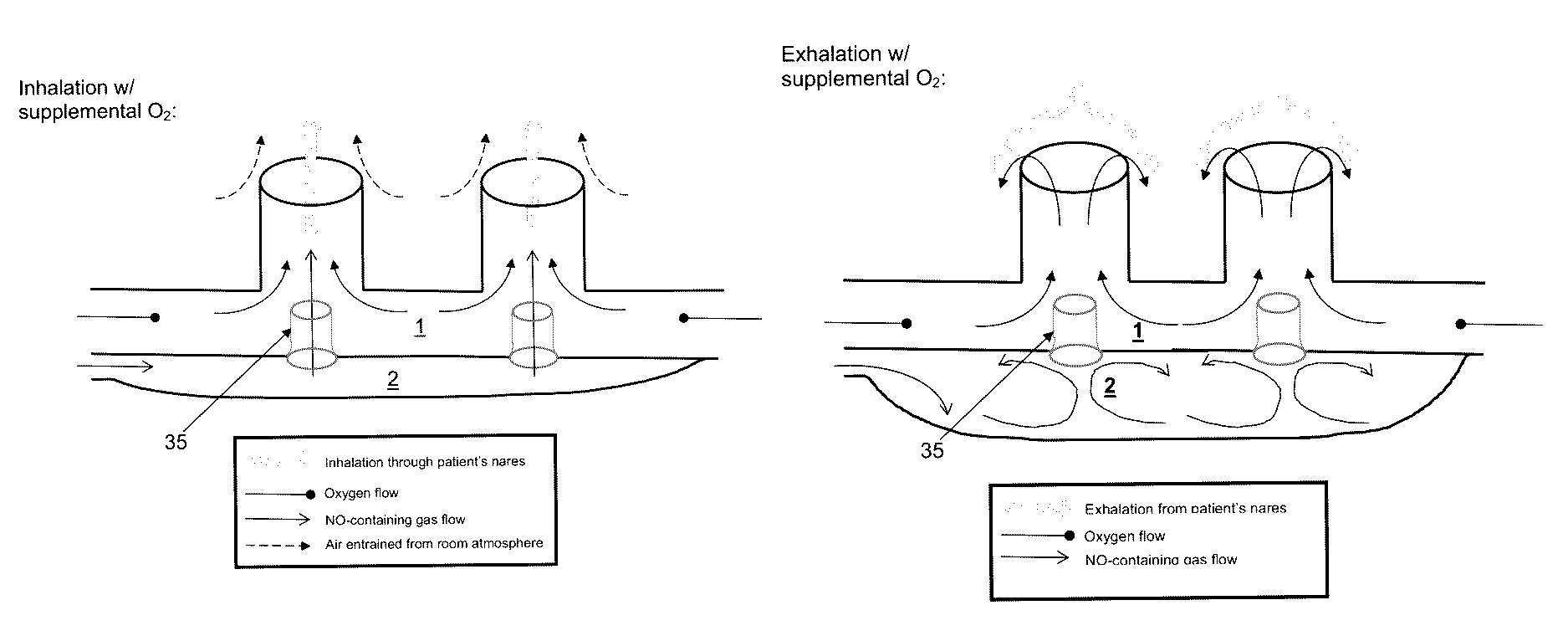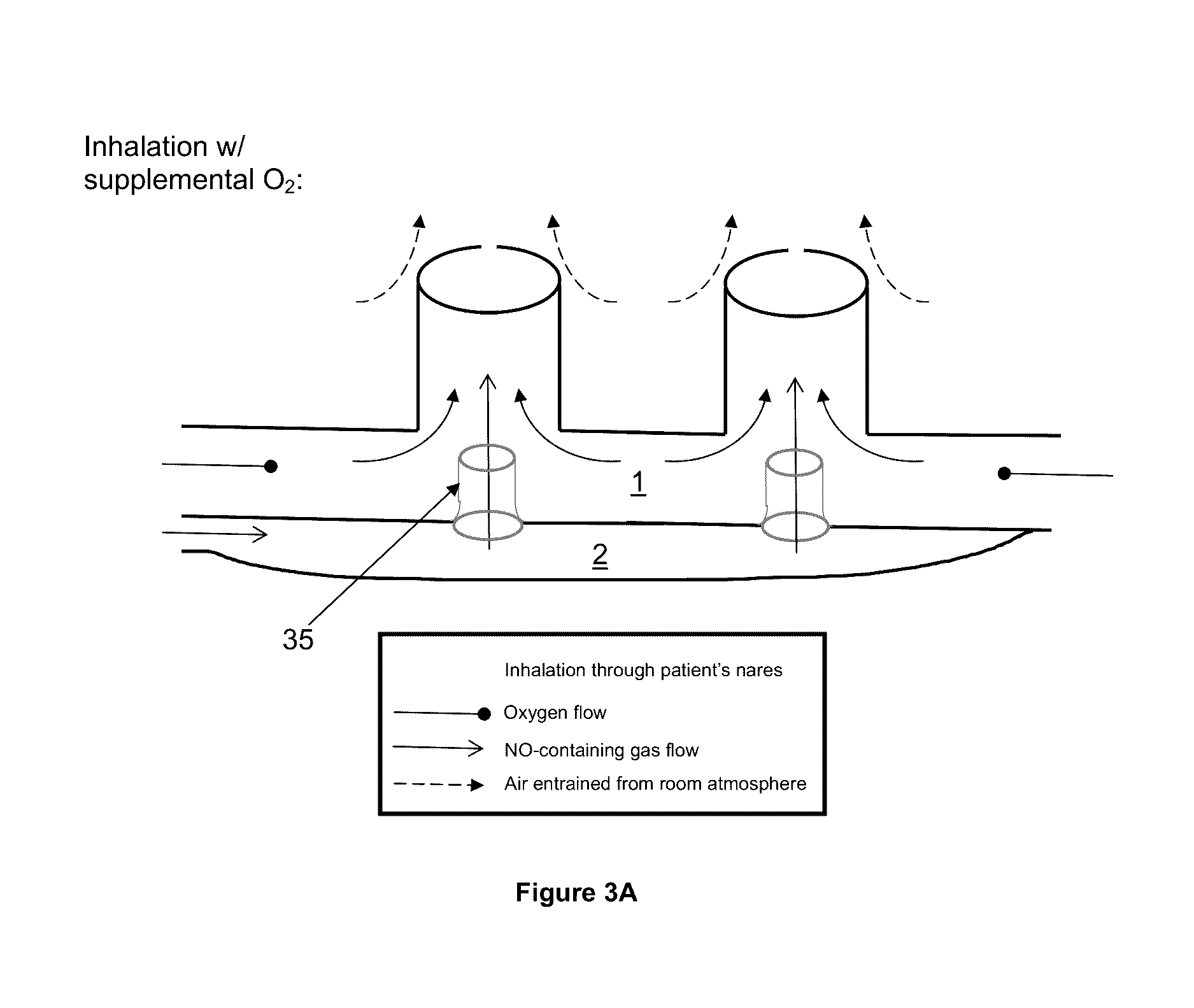Method of delivering medical gases via a nasal cannula assembly with flow control passage communicating with a deformable reservoir
a technology of flow control passage and nasal cannula, which is applied in the direction of respiratory devices, medical devices, other medical devices, etc., can solve the problems of limiting the portability of the system, increasing the size of the system, and delivering the pulse, so as to minimize the exhalation of no, minimize the size of the system, and minimize the effect of the delivery
- Summary
- Abstract
- Description
- Claims
- Application Information
AI Technical Summary
Benefits of technology
Problems solved by technology
Method used
Image
Examples
working example
[0130]To demonstrate an embodiment of the restriction flow channel of the invention, a mechanical lung simulation device was used to produce a breathing pattern. The breathing pattern was set to that of an average adult human. Breathing patterns representing any patient could be used as the basis for validating a restriction flow channel design for a specific class of patients (e.g. pediatric breathing patterns). The exemplary experiment was performed using a single flow restriction channel [35a] positioned between a first compartment [1] and a second compartment [2]. A 22 mm diameter straight connector [22] including a port for gas sampling via the gas sampling line [30] was positioned between a lung simulator (ASL 5000; Ingmar Medical) [40] and T piece [21]. A second arm of the T piece [21] was connected to a 22 mm straight connector [23], which contained internally a 4 mm flow restriction channel [35a]. The third arm of the T piece [21] was either left open to the room atmosphere...
PUM
 Login to View More
Login to View More Abstract
Description
Claims
Application Information
 Login to View More
Login to View More - R&D
- Intellectual Property
- Life Sciences
- Materials
- Tech Scout
- Unparalleled Data Quality
- Higher Quality Content
- 60% Fewer Hallucinations
Browse by: Latest US Patents, China's latest patents, Technical Efficacy Thesaurus, Application Domain, Technology Topic, Popular Technical Reports.
© 2025 PatSnap. All rights reserved.Legal|Privacy policy|Modern Slavery Act Transparency Statement|Sitemap|About US| Contact US: help@patsnap.com



